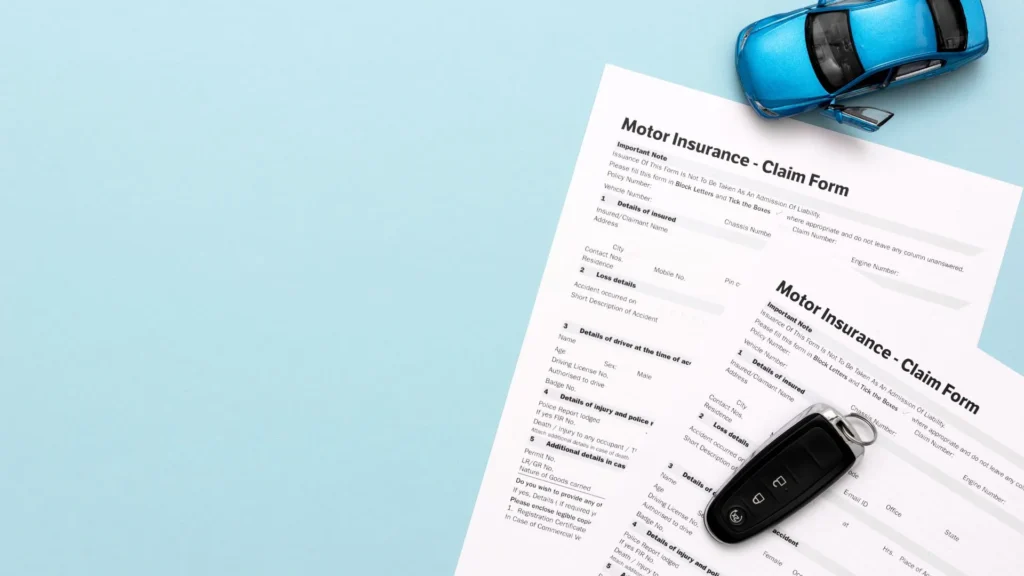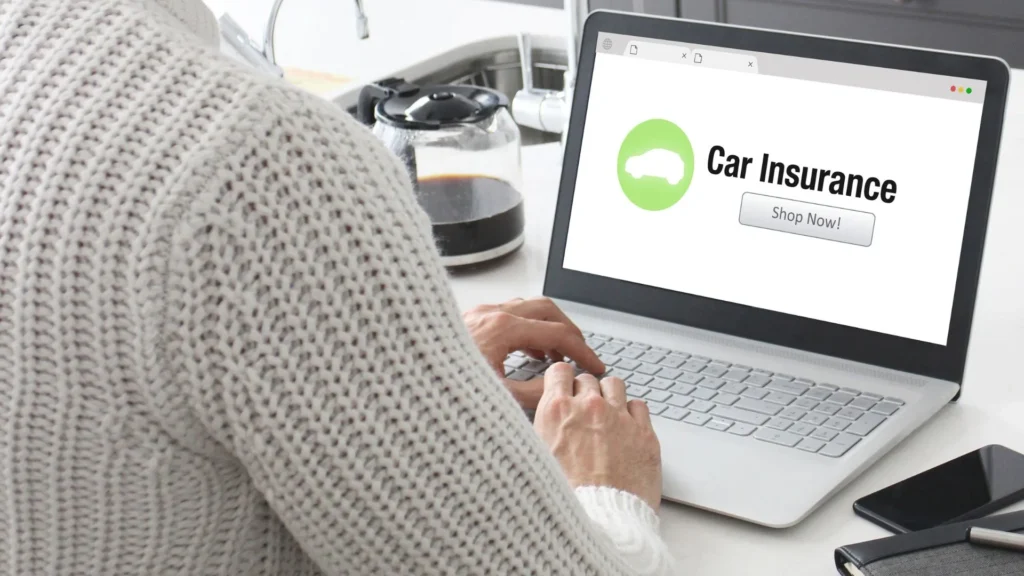Commercial auto insurance generally refers to employees being given insurance covers for their cars for business purposes. However, if the employee uses it for their personal tasks, will it still cover the costs? Well, the good news is, yes, it does.
Commercial or business auto insurance insures the cars used for your business or owned by your company. You get a higher coverage limit and can protect your vehicles from any mishaps that may occur in the future.
A few examples of commercial vehicles include delivery vans/ cars/ trucks used by a business, cars provided to employees for business or personal work, and a person’s pre-owned car that is used for business. While you are exploring the right auto insurance options for your business, Beem can help you compare quotes from different insurance companies to get the best deals for your needs.
Why Do You Need Commercial Auto Insurance?
Imagine a situation where a delivery guy gets into an accident and gets his car wholly damaged. In this case, the company must pay a lot to repair it. If the company has commercial auto insurance, they will be compensated for the damage caused.
Simply put, commercial auto insurance protects and insures vehicles used for business purposes. Before we dig in to understand how commercial auto insurance can also be used for personal use, understand why it is imperative to insure your commercial vehicles.
1. Safeguarding Assets
In a business with ample vehicles in commercial use, auto insurance helps compensate for the repairs or damage of your vehicles.
2. Mandatory Requisite
The government has made it compulsory for any business to get commercial auto insurance for all the vehicles owned by the company or vehicles used by the company for their business purpose.
3. Monetary Protection
Your business could face many financial downfalls during an accident or any lawsuit if you do not have commercial auto insurance.
Does Commercial Insurance Cover Personal Driving?
1. Slight Personal Use
Commercial auto insurance policies may offer flexibility by allowing business owners or employees to use the insured vehicles for limited personal purposes. If you or your employees use business vehicles for personal tasks like grocery shopping or commuting to and from work, those activities may be covered by commercial insurance. However, some insurers may set a limit on personal usage compensation.
The scope of personal use coverage varies significantly between insurance companies and policies. There may be more robust restrictions on personal use in some regulations than others. Always read your policy documentation and speak with your insurance company to fully comprehend the terms and conditions.
2. Hired Auto Coverage
Hired auto coverage is a provision within commercial auto insurance that comes into play when employees use their vehicles for business-related tasks.
For instance, if an employee uses their car to deliver products, make client visits, or run errands on behalf of the business, this usage may be covered under the employer’s commercial auto insurance policy.
Hired auto coverage is crucial because it protects the business and the employee in case of accidents or liability claims while using personal vehicles for work-related purposes.
Some specific other parameters are taken into account while compensating commercially insured vehicles for damage caused due to personal use. Another essential point is that the compensation may vary for personal damage and damage caused during work.
Every insurer might have various terms outlined in the policy contract. Therefore, individuals and businesses should carefully review their policy documents and discuss personal usage scenarios with their insurance providers.
If you feel you can get some changes or additions to the policy, ask your provider to make the necessary adjustments to ensure you have the protection you need.
Also Read: Does Insurance Cover Car Seat Replacement After Accident?

Know about Collision Insurance
What are the Other Things Covered In a Commercial Auto Insurance Policy?
As we all know, a commercial insurance policy protects our vehicles. There are some more provisions provided that can vary from one to another, but here are some commonly provided elements
- Bump coverage: This includes payment of any damage done due to collision with any other vehicle or object, disregarding whose fault it was.
- Personal auto coverage: It refers to a situation where if any of your employees or you are using your vehicles for business purposes, the insurance will cover the cost of any damages done to the vehicle
- Roadside and towing assistance: This means the policy covers any cost of towing your vehicle if it breaks down.
- Non-collision coverage: This covers all costs of your vehicle if it is ever stolen, vandalized, or catches fire.
- Medical coverage: This covers all costs of medicines and hospitals if any of your employees are met with an injury during the accident. Auto insurance with Beem covers any damage to your vehicle, damage to other vehicles or property, and injuries to yourself or others.
Also Read: Does Getting Your Car Towed Affect Your Insurance?
Cost of Commercial Insurance Policy
The cost of a commercial auto insurance policy depends on several factors, such as:
1. Business Location
Due to variations in accident rates, laws, and other local risk factors, insurance prices may vary depending on the states in which your business is located and by ZIP codes or cities.
2. Types of Vehicles
The cost of the insurance coverage is also influenced by the make, model, and age of the vehicles used by your company, with newer or more expensive vehicles frequently carrying a heftier price tag.
3. Yearly Mileage
The cost of your insurance coverage will also depend on how many kilometers your vehicles will cover throughout the year. Increased annual mileage increases the risk of accidents, tears, and damage from excessive use.
4. Amount of Coverage
The amount of coverage you choose, including deductibles and liability limits, also affects the cost; higher coverage usually means a higher policy cost.
5. Driving Records
The history of accidents and traffic violations among your drivers plays a role in determining insurance premiums, with safer drivers often securing lower rates.
Also Read: Does Car Insurance Cover Non-Accident Repairs?
How to Buy a Commercial Auto Insurance Policy?
Buying a commercial auto insurance policy involves many steps to ensure your business and vehicles are decently covered; here is a step-by-step guide to ensure that:
Evaluate Your Insurance Needs: Establish the types of vehicles your business has, including the model, make, and age.
Look for insurance providers: Search for companies that specialize in providing commercial auto insurance. You can look for them online or take recommendations from other business owners.
Ask for quotations: Take quotations from multiple insurance companies and choose the best that you like.
Converse about coverage: Ensure the policy parallels your business needs and meets legal obligations in your city/state.
Collect information: To get precise quotations, you need to lay out specific information and collect the following information:
- Characteristic information- your name, address, date of birth, etc
- Automobile information- model, make, year, VIN (vehicle identification number)
- Driving records- specific details about any accidents/ claims/violations you’ve had.
Also Read: Does Car Insurance Follow the Car or the Driver
Tax Details of Commercial Auto Insurance Policies
The commercial auto insurance policy is tax deductible for businesses, so as long as the vehicle is used for business, it will be tax deductible. Hence, if counted as a business expense, the business will have to pay less tax.
But to make the policy tax deductible, there are specific criteria that the business has to fulfill:
- The vehicle must be used for business purposes only.
- The business should use the actual expense method, not the standard mileage rate.
Auto Insurance Coverage Can be Applied to
There are many aspects to which a commercial auto insurance policy can be applied. Here are a few:
- Collateral Damage Coverage: This covers any damage to another person’s assets, such as property, vehicle, etc.
- Depreciation insurance: The policy covers the cost of the difference between the cost of the vehicle when it was bought and what it is after the accident, as well as the amount you owe when you take a car loan.
- Rental recommendation: If, in any situation, your vehicle is gone for repair, the policy pays for the rental car.
Also Read: Does Car Insurance Cover DUI Accidents?

Factors That Affect Car Insurance Rates
Driving History
Your driving history is the most essential component that influences your auto insurance rates. A clean record, unbound of accidents and traffic revelations, is a reliable way to obtain lower premiums.
Gender and Age
Your insurance premium also depends on your gender and your age. A young driver (under 25) may have to pay more as they are more likely to be in an accident.
Locality
Your business location is also a critical aspect in calculating your insurance cost. Suburban areas with higher populations tend to have higher insurance rates than rural areas.
Type of Vehicle
The type of vehicle your business owns also determines the rate of insurance. For example, luxury and high-end sports cars can cost a higher premium amount as those are more expensive if there are any repairs.
Marital Status
Your marital status is also one of the factors that determine the rate of your insurance. If you’re married, the rates are usually lower than those of unmarried because married individuals tend to get into fewer accidents than unmarried.
Also Read: Does Car Insurance Cover Fire Damage?
Conclusion
To sum it up, commercial auto insurance is a crucial shield for businesses that run on vehicles. It protects against unanticipated liabilities and risks related to driving in a business context and often covers personal damages as well.
The key takeaway is understanding the specific insurance requirements and choosing the most appropriate coverage policy that meets your personal and commercial requirements.
Purchasing commercial auto insurance serves as your safety net. It provides financial security and peace of mind in running a business where unplanned personal or professional dangers are a part of your life. Meanwhile, check out Beem to get the best deals for your car insurance and get up to 40% off on your adequate coverage.





























